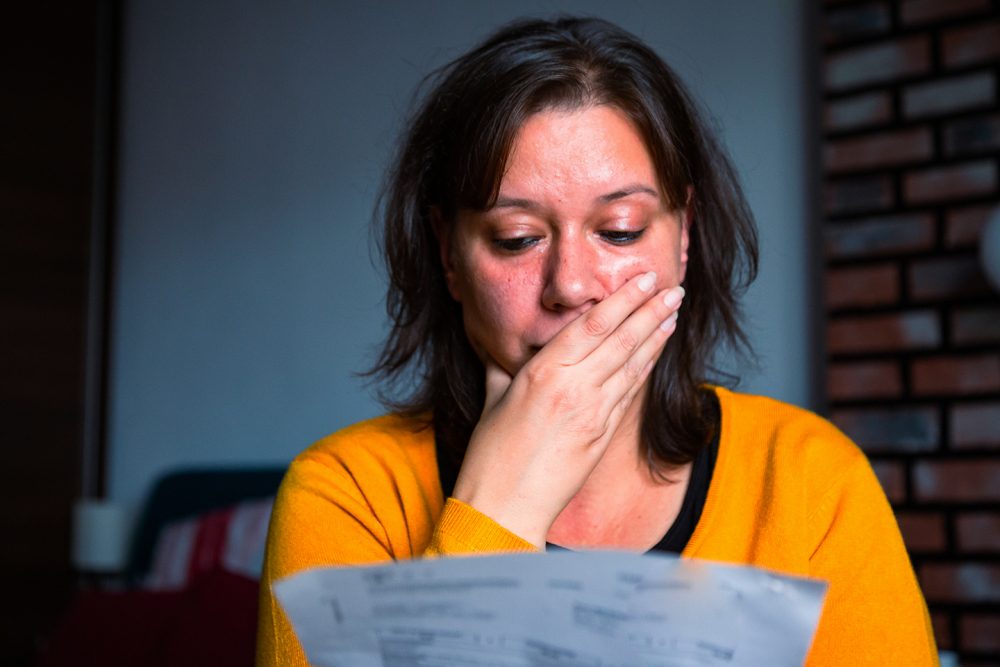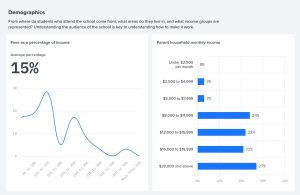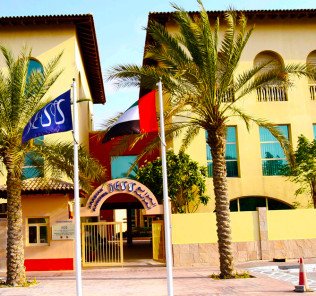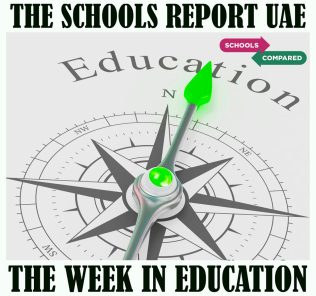Dubai’s ‘Not-For-Profit’ Schools Mystery Debunked: As NFP schools raise their fees, UAE parents feel the pinch of tuition costs and inflation
As inflation rates soar across the globe, UAE families are finally starting to feel the pinch.
Filling up the car for the school run surged to an all-time-high in April, leaping to Dh3.62 per litre (for Special 95 petrol) – a 36% increase since the beginning of the year.
Meanwhile the cost of filling lunch boxes is creeping up too; flour and cooking oil prices are said to have jumped by 40% and 20% respectively compared to pre-pandemic prices, and some economic forecasters predict that overall grocery costs could rise by up to 30% within the year.
Having so far been insulated against the severity of inflation currently taking its toll in countries like the UK, the US and India, incremental price rises due to issues related to both pandemic recovery and the Ukraine war have gradually snowballed to a point at which UAE parents are now noticing – and some of them are worried.
“The most shocking increase for me has been in rent,” says Ellie Salkeld, a British mother of seven-year-old twins and a member of the SchoolsCompared Parent Panel:
“And when I filled my petrol tank the other day. But’s it been creeping in for months, and I see it every supermarket shop with the prices inching up. Those bags of rice chips that were around Dh5 are now nearly Dh8. There are fewer, if any, deals on staycations that I’ve noticed.”
“I’m certain there will be an impact on our quality of life in the future. I am very sceptical that we will last another rent increase in our current home, and yet another move fills me with gloom.”
“For me, it’s a watching brief at the moment. I am actively watching now, whereas before, I wasn’t.”
But there are slivers of solace. Not only does the UAE benefit from a dynamic growth sector and diversified supply chain, but the UAE government has taken steps to ensure consumers are protected from unjustified food price hikes.
Perhaps most significantly, school fees were also frozen for the academic year 2022-2023 in Dubai. Education represents one of the biggest financial outlays for most UAE families aside from housing, so schools freezing their fees offers some much-needed security for families bracing themselves against the possible impact of a global inflation crisis and recession.
Except, not all of them have.
On the week after Spring Break, the news broke to parents of children at Dubai College that the school would be hiking up its fees by 5% next academic year.
Because although Dubai’s private-school regulator, the Knowledge and Human Development Authority (KHDA), announced in March that all Dubai school fees will remain static for the next academic year 2022 – 2023, there are some official exceptions to that rule. Most notably, the not-for-profit schools in Dubai – of which there are 15, including Dubai College, Jumeirah English Speaking School (JESS), Dubai English Speaking School and College (DESS and DESC) and American School Dubai (ASD) – which are not subject to the same rules and are able to increase their fees.
Why can some schools raise tuition fees when most other schools can’t?
Dubai College is one of only a small proportion of Dubai schools that is eligible to raise its fees for the next academic year.
The decision regarding whether or not Dubai private schools may raise their fees is based on the Education Cost Index (ECI) issued by the Dubai Statistics Center. The ECI measures annual changes in the costs of running a school, including salaries, rent and utilities. This year the ECI has been set at -1.01%, meaning that school costs supposedly went down by around 1% in the past year.
As a result, Dubai’s private-school regulator, the Knowledge and Human Development Authority (KHDA), announced in March that all Dubai school fees will remain static for the 2022 – 2023 academic year, for the third year in a row.
However, the not-for-profit (NFP) schools in Dubai are not bound by the Education Cost Index like the other 204 for-profit (FP) schools in Dubai, and are able to apply to the KHDA for permission to raise their fees.
As Dubai College Headmaster Michael Lambert explained in a communication to parents:
“As a not-for-profit which is not bound by the Education Cost Index, we applied to the KHDA for a 5% fee increase for the 2022-23 academic year. Our application was approved and has now been ratified by our board of governors.”
We contacted the KHDA, Dubai College, JESS, DESC and ASD for further comment on why NFP schools are exempt from the ECI, but all declined to comment at this time.
UAE parents struggle with cost of living: “If we leave Dubai it will be because school fees have become too high”
In the context of rising costs across the board, even a 5% rise in school fees can have a dramatic impact on some families’ fortunes – especially those with more than one child.
One parent of two children – one of whom attends Dubai College (DC) and another who attends another NFP school, DESC – told SchoolsCompared that the family will need to cut back on other expenses in order to be able to afford the DC fee increase and any other increases that might be imminent.
“It’s already been a huge jump for us going from paying Dh40,000 – Dh50,000 at primary school to now paying Dh83,000 for Dubai College at secondary, while DESC is about Dh70,000. I certainly don’t want a 5% increase on top of that.”
“I don’t really understand why only Not For Profit schools can raise fees, when all schools have presumably been subject to the same conditions that the Headmaster uses to justify the increase – such as employing extra staff for health and safety and doctors over the pandemic, and paying for more Arabic teachers due to increased requirements for Arabic to be taught in later years.”
“However, I feel like there’s nothing we can do about it and our only choice is just to pay it and cut back on things in our own lives – our kids are not doing certain extra-curricular activities any more for example, just to cover the costs.”
“If we leave the UAE to go back to our home country, it’ll be because the school fees here have become too high for us to afford.”
Are not-for-profit schools really that different?
Although they are few in number, NFP schools have a high level of awareness and esteem amongst parents in Dubai – partly due to their academic or sporting prowess, and partly due to a level of ‘mystique’ that has grown up around them over the years. As some of the emirate’s most historic schools, they have had the time to establish their reputations, and their selective application process – sometimes based on academic ability, sometimes based on corporate ‘debentures’ or significant down-payments of around Dh20,000 to reserve a spot – means that competition for spaces is more pressured than at most FP schools.
But the fundamental difference between NFP and FP schools comes down to the business model.
First, it’s important to note that all Dubai private schools must eventually operate in a profitable way in order to be a viable business long-term.
The majority of Dubai private schools are owned by companies that invest in the school – paying for major overheads that would generally not be covered by school fees alone or at first, such as land, building rent or facilities upgrades, as well as teacher salaries, etc – and then those same investors have a stake and say in the running of the school, and take a share of the profits.
NFPs on the other hand do not have investors; in many instances they were bequeathed the land or building in which they are set, and any profit that comes from school fees is re-invested back into the school. Instead of answering to corporate shareholders or investors, NFPs only answer to a board of governors, who do not receive any financial gain for their contributions.
Fiona Cottam, Principal of Hartland International School (a for-profit school), says:
“I do believe that there is a perception that NFP schools are better resourced and have better investment and indeed that students, families and staff at those schools are also better cared for. Over my 13 years in Dubai I have always worked in the FP sector. Initially, in all honesty, with very little thought as to the differences, but over the years, my reflections are ones of deep respect for the owners and businesses who use private money to invest in education. I have never wanted for anything from the owners of the organisations that I have been a part of and I have always been able to run exceptional schools with happy and successful environments.”
“The difference is obviously as the titles suggest, however, if a school is led well and run efficiently from both an educational and business perspective, parents and students will never see a difference between the two.”
“Even a NFP school must be operationally sound and business savvy in a world where costs and economies drive decisions, where enrolments fluctuate and where additional resources are sometimes funded through leasing and rental of facilities.”
“There are NFP schools around the world who fail through mismanagement of money just as there are highly successful NFP brands who operate million-pound businesses through land, general investment, fund raising and portfolio.”
Why aren’t NFP schools significantly cheaper than FP schools?
Parents are often surprised to realise that NFP school fees are often no less expensive than FP school fees; in some instances, they charge far more premium fees than FP schools.
So with such steep fees and no shareholders to please, where does all that extra cash get spent?
Roughly 70% of every school’s expenditure is staff, and NFP schools are known to pay above the market rate for their teachers, in order to attract and retain the best staff. As a result teacher turnover in NFP schools tends to be very low, with many teachers staying for decades at the same school – a fact that can be both very positive or possibly negative, depending on the individual and your point of view (one person’s stalwart, impassioned pedagogue is another’s disillusioned dinosaur who’s become too comfortable with his or her generous pay packet).
Exactly how much higher are teacher salaries at NFP schools compared to FP schools? SchoolCompared reached out to Dubai College, DESC and JESS for comment but all schools declined – although our estimate based on information from anonymous sources is that teacher salaries are around 20-50% higher in NFP schools than in FP schools.
Are NFP schools better?
Although it is true that the NFP schools tend to achieve very good exam results and have good links with universities when it comes to helping their students secure places, this is equally true of many of the 200+ For-Profit schools operating in Dubai. Fiona Cottam, Principal of Hartland International School, explains:
“The challenge that I pick up from social media posts is the stance that education should not be a profitable entity, and, in some ways, this viewpoint comes from our own personal experiences where education in many countries is a social given and expectation. But in a school-fee-paying economy of private education as we have in Dubai, this argument is weakened.”
“NFP schools do emphasise how all of the school fees are reinvested back into the school to improve the quality of the children’s education. I do not in any way dispute that, but of course how they distribute and manage that money varies.”
“Some will have higher pay scales than others and better staff benefits and indeed some will be incumbent to banks and loans and repayments with interest.”
“In the current climate, there are very few FP schools that are even covering costs but those who are have investors who continue to invest in education and further projects.”
“It is a fallacy to say that the FP sector will always fall short of an education provided by an NFP because of this and certainly, parents do not get better value for their money at an NFP versus a for-profit school.”
“Newer schools certainly do face a greater challenge of high land rental costs which many of the older established schools might not face but both sectors are well resourced and staffed with highly qualified and expert teachers and staff and I would challenge anyone to see any discernible difference.”
“Indeed it is worth noting that the majority of NFP schools are also near the top of the fee structure in the segments in which they operate. For any school to be successful, it must meet the expectations of a very astute new generation of parents. The fact that so many parents send their children to one of the many very well-run FP schools in Dubai is testament to the fact that the FP school model is well aligned to the needs of the parents.”
Is now the right time for schools to be raising fees?
Although NFP schools are exempt from the fee freeze that all other schools are subject to, does this mean that they ‘should’ be raising them? Or do they have a moral obligation to voluntarily bind themselves by the findings of the ECI and follow suit with the rest of the schools in the city?
The fall-out from the pandemic is still very much real for many families, and this is now being exacerbated by the rising cost of living seen in petrol and food price hikes due to reasons related to the Ukrainian war and supply chain issues.
Petrol prices have been at an all-time high for Dubai this year; although prices have dropped this month, in April parents were shelling out an average of almost Dh280 to fill the tank, compared to Dh150 just a matter of months ago.
With essential food items also rising, these aren’t things that it’s easy to budget on.
Similarly, children’s education tends to be another non-negotiable for UAE families. As one UAE parent whose child attends DESC told us, post-pandemic it’s no longer about earning money to splash out on brunches and luxuries for her – it’s just about covering the basics:
“We work now just to cover school fees and rent. That’s it.”
At a time like this, as we roll from one pandemic crisis into another war-related crisis and potentially massive inflation, is it right that NFP schools raise fees just because they can? All schools have suffered due to the fee freezes over the past couple of years, and all have been subject to the same increased costs and losses – such as extra health and safety staffing due to COVID – as the NFP schools. What makes the NFP situation any different? Again, we reached out to Dubai College, JESS, DESC and ASD for their thoughts but all schools declined to comment at this time.
While some parents might not feel the pinch of a 5% fee rise too keenly, EdStatica data on Dubai College parents’ demographics shows there is still a significant proportion of parents whose school fees represent 25% of their annual income, and even some for whom school fees constitute 50% of their yearly salary. For parents like this, adding another 5% of Dh83,000 on top is not mere pocket money – it could be the difference between being able to continue at the school or having to return to their home country.
On whether it is fair that NFP schools are allowed to raise fees but FP ones are not, Fiona Cottam, Principal of Hartland International School, comments:
“It is interesting that I and many others were not aware of this and yes, it does disappoint me. I respect the decision to not increase fees as a general rule, but to single out the for-profit sector, alone, as not being able to increase fees, does not take into account the place that they are on their financial and development journeys.”
“Our costs continue to rise and as we continue to grow, should there ever have been any surplus monies, it is all ploughed back into the continued development of the school, the staff, the students and site.”
“As a school in our seventh year of operation, we made significant allowances for parents during the pandemic, especially by reducing fees overall to help people in their times of challenge and I am not aware of many schools that did this, whether FP or NFP.”
“Like all sectors of the economy, the impact of the last two years has left its mark on all schools and we will carry that burden for years to come.”
All of this brings us back to the question of bursaries. Unlike in countries like the UK, where bursaries are very transparent in independent schools, we have never come across a UAE school that is willing to be open about its bursary scheme. What would happen to a child whose family struggles to make ends meet with the additional fee increase? We know that schools often will assist on a case-by-case basis, but we would like to see schools being open about this, so that families know that they have options, and that they do not have to feel such stress or shame if the spectre of a fee increase would have a dramatic impact on their and/ or their child’s quality of life.
There’s no doubt that schools have suffered too over the pandemic, and fee freezes have hit the salaries and housing allowances of teachers – many of whom are parents themselves – and often in a significant way. Schools need to remain profitable, and they need to invest in their people and their infrastructure to be able to offer the highest level of education for their children.
But now is time for reaching out and opening up, not shutting down and putting up barriers.
We have seen what happens when humans cut themselves off and isolate away from each other. If the pandemic has taught us anything, it’s that community is everything.
And, happily, we’ve also seen the incredible difference that education providers can make when they are willing to step up, reach out and be informed by compassion as well as the bottom line.
Surely now, more than ever, is a time for connection and engagement – for openness and transparency – rather than secrecy and evasion.
If we are going to have fee increases, then shouldn’t all schools also now publish, transparently, the availability of bursaries – and clear information on the process for applying for help when times are tough – and the levels of help available?
This would, at a sweep, resolve the potential fall-out for children of raising fees – and it is children that surely must be centre stage in the decisions of all of us.
Read the story about the Dubai College decision to increase its fees here.
Read our review of Hartland International School here.
Visit the official web site of Hartland International School Dubai here.
Visit the official web site of Dubai College here.
© SchoolsCompared.com. 2022. All rights reserved.









































































Leave a Response